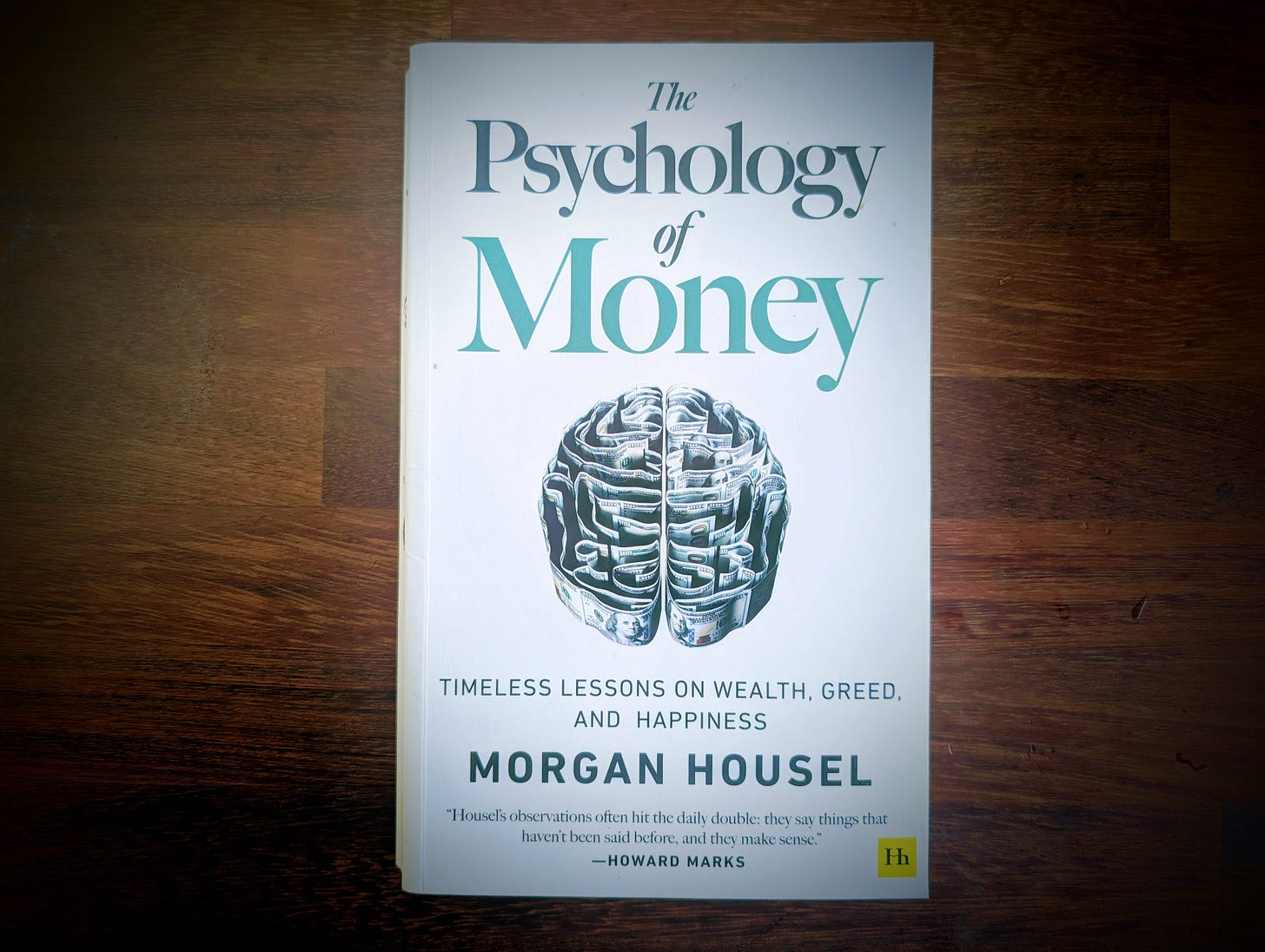The 2010s was the decade of the Entrepreneur.
The 2020s will be the decade of the Investor.
“Napoleon’s definition of a military genius was, ‘The man who can do the average thing when all those around him are going crazy’”.
Morgan Housel
Difficult → Easy → Difficult
In 2023, here, I wrote, ‘That “Should I invest?” question is probably the most difficult one to answer as an investor”’.
And it should be difficult.
Or perhaps, given I also wrote, “How can I make that difficult question a really easy one to answer?”, it’s that investment decisions should be as difficult as possible, but no more so1.
Take a simple idea
Something I’ve been wrangling with recently are the tax breaks that UK investors often get. These breaks are known as SEIS and EIS and they are very generous — with an SEIS qualifying investment the investor can get 50% of their invested amount back in their next tax return and even more back if the company fails. In addition there’s no Capital Gains Tax if it all goes incredibly well2.
On the surface that’s great, I’ve been a supporter of these schemes because they can help get people started when it comes to angel investing and, to be clear, I’ve taken advantage of these them a number of times myself3.
And take it seriously
However I’ve recently been wondering whether these schemes has run their course. More than getting a tax kickback or not paying GCT, I’ve been thinking about the subconscious mindset that having such a tax break lulls an investor into.
If an investor gets a 50% tax kickback on whatever amount they put in then are they more likely to think, “Ah well, it doesn’t matter if it fails”?
Does that mean some companies might raise investment when they perhaps shouldn’t (yet)?
And if the investor isn’t at risk of losing all their money then the stakes aren’t as high as they could be. So could helping that company slip down their to-do list? That might leave the founder hanging when they expected more support.
From the founder’s side, does getting this kind of investment give them more confidence or validation than they might deserve? Founders can think that raising money is a terrific milestone, but if the investors aren’t quite all-in or they don’t treat the investment as seriously as they might then it could be a bit of a false dawn.
Make up your mind!
My mind isn’t fully settled on this so if you have a view please hit reply and let me know — be candid, tell me I’m bonkers if that’s what you think.
It’s just all this makes me think back to that Chris Sacca interview from 2012, here. This is one I still watch a few times each year. In it, Sacca talks about his early angel investing days. He says (at around 38 minutes in) that he really had no business being an angel investor — he wasn’t a VC, didn’t have a fund and wasn’t really rich enough.
“My second investment was Twitter and, um, you know, because it was $25k and it was so material [an amount to me] I just started showing up at the company because I needed that $25k back someday! So, you know, I don't think Jack [Dorsey] really necessarily wanted me there but I just kept inviting myself over and being like ‘all right what can I do?’”.
Chris Sacca
Show me the incentives
I guess, as ever, it’s about seeking the truth. Why is the founder doing this, why is the investor doing that? When you take everything else away, what incentive are you left with?
And to quote Morgan Housel again:
“Nothing is as good or as bad as it seems.”
Answer on a postcard…
In other News
💰 Search Smartly is fundraising.
💰 Black Bullion is fundraising.
💰 Seep is fundraising.
If you’re keen on joining me as a co-investor please hit reply!
More from me?
If you like my writing you can get more by buying my book, ‘Find your 9others’. It’s on Amazon here.
And if you’ve already read ‘Find your 9others’ please leave an Amazon review here.

Q&A
🆓 Free subscribers get a short preview and all free public posts.
💰 Paid subscribers can request a video call to ask me anything and talk about the things I don’t share anywhere else.
💰💰💰 Founding Members get all paid benefits plus you get to WhatsApp me unlimited questions for discussion, you get a one hour discussion session once a quarter plus a great lunch in London, on me.
Important: None of these posts are investment, tax or legal advice. If you are thinking about investing you should seek the advice of a suitably qualified independent advisor.
#CapitalAtRisk
With regards to ideas and complexity Albert Einstein said, "Everything should be made as simple as possible, but not simpler" and that line of thinking is good.
There are lots of T&Cs of course and, as ever, this is not investment, tax or legal advice. You can read more about SEIS and EIS by searching the UK Govt website here.
But not always — Unplugged and what3words did not have EIS when I invested but those investment decisions were still easy (after I’d gone through the difficult thinking bit!).



